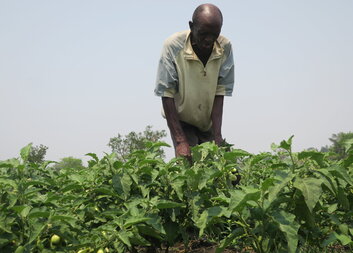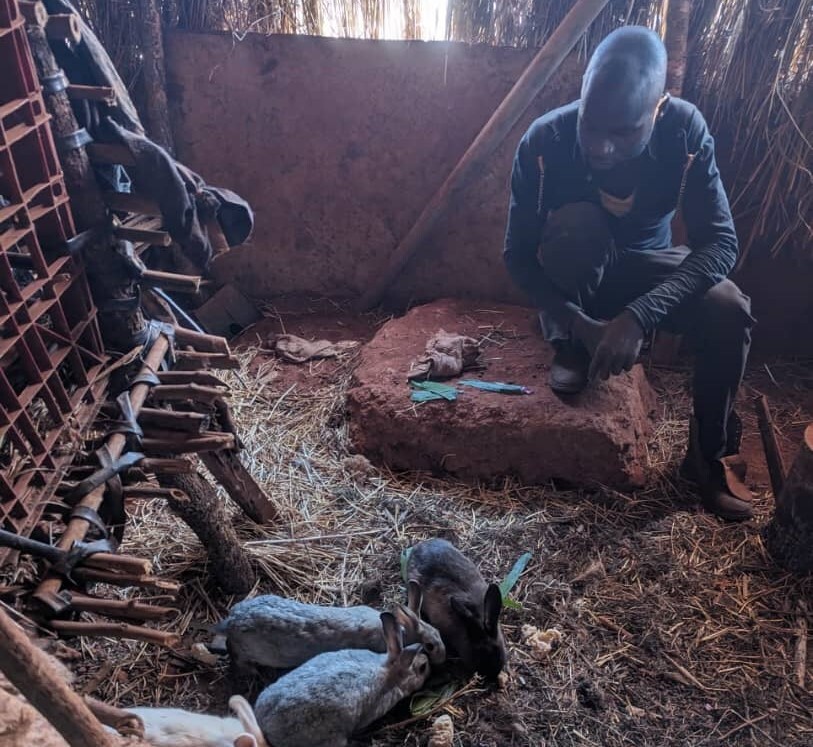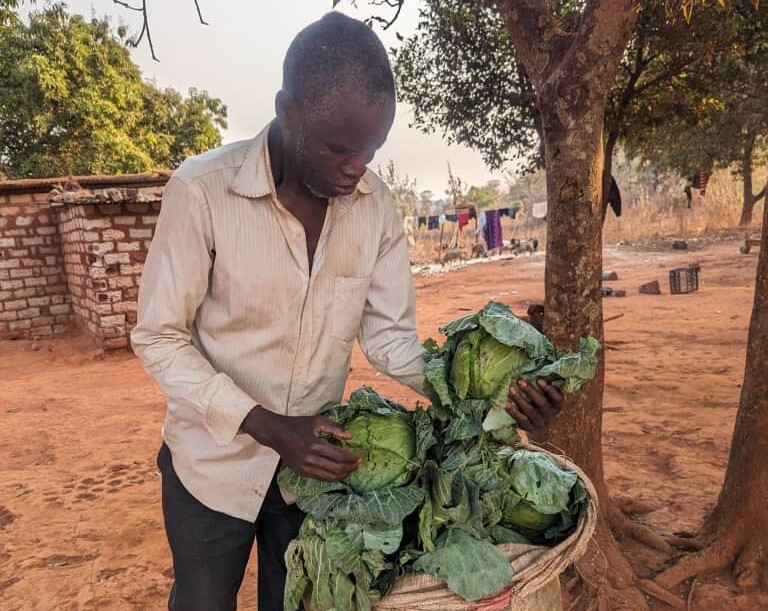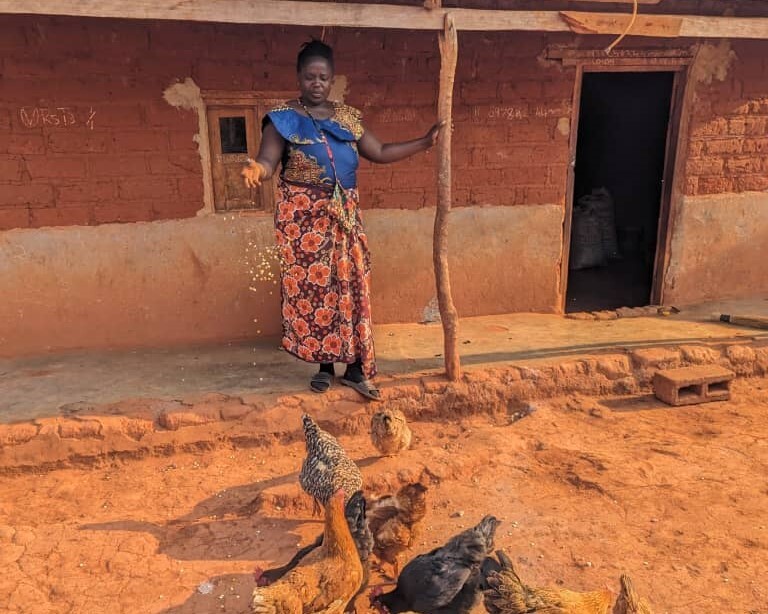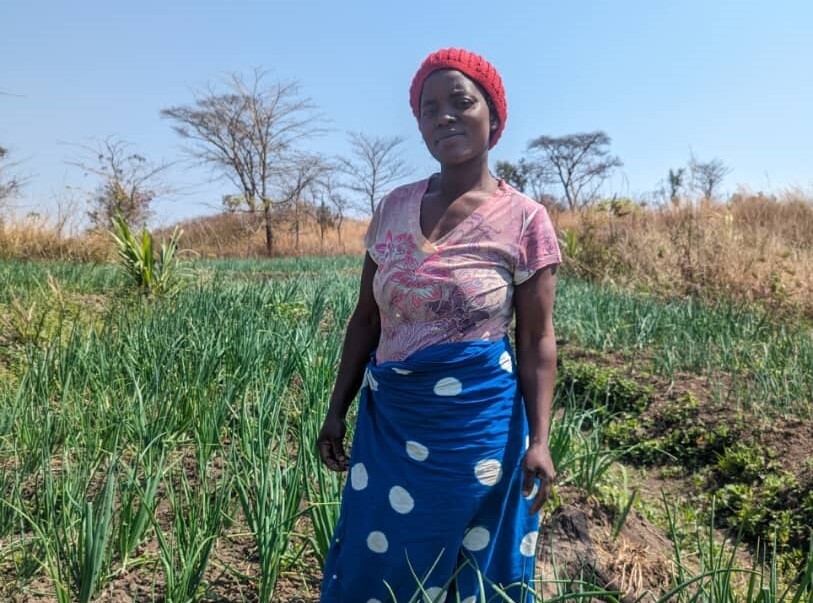Caritas Czech Republic in Zambia supports over 100 farmers in the Meheba refugee settlement to establish home gardens and raise small livestock. This initiative has provided a source of livelihood for individuals such as Nzoyihera Janvierz, Makuya Kasanga, Maliti Chingi, Jacqueline Nindorera, and Rabbeca Cimpaye who shared their stories with us.
Nzoyihera Janvierz
Nzoyihera Janvierz, a refugee from the Democratic Republic of Congo, has received support from Caritas Czech Republic to start a home garden. Nzoyihera Janvierz and his household received essential gardening inputs, including onion and vegetable seeds. By selling the onions he grew at the nearby markets in Meheba and Manyama, Nzoyihera has secured a reasonable income. Thanks to this, Nzoyihera's family now has their daily needs met and is on the road to self-sufficiency and well-being.
Makuya Kasanga
Makuya Kasanga, another refugee from the Democratic Republic of Congo, decided to start a small-scale livestock farm with rabbits. He creatively uses vegetable waste to feed his four rabbits, which are expected to multiply soon. Kasanga plans to use rabbit breeding to create a substantial stock to sell at the local market.
In addition to the livestock, his garden also includes crops like onions, rape, and impwa, further diversifying his sources of income and fulfilling his household's requirements.
Maliti Chingi
Maliti Chingi, a beneficiary of our Support to Model Farmers activity, received a cash grant, which he invested in three goats and expanded his vegetable garden. Through his agricultural efforts, Maliti has successfully harvested and sold many cabbages cultivated across half a lima. Mr Chingi strategically targets neighbouring areas to sell his cabbages, demonstrating the profitability and impact of his farming strategy.
Jacqueline Nindorera
Jacqueline Nindorera, a proud Burundian, also received our support through the Support to Model Farmers activity. She took up poultry production with financial assistance and got Kuroiler chickens alongside her gardening business. Jacqueline has already sold several trays of eggs from her flock and plans to further expand her poultry business.
Rabbeca Cimpaye
“I am very grateful for the support I received from Caritas Czech Republic. Now I can take care of my family and provide for our basic needs, which I could not do in the past years,” says Rabbeca Cimpaye.
Rabecca Cimpaye started her own garden and chicken farm. With resources such as vegetable seeds, improved village chickens and orange seedlings, her farm is flourishing. She now boasts of a successful harvest of onions and a thriving collection of chickens. Rabbeca plans further to expand her poultry business for commerce and personal livelihood.
Supporting refugee livelihoods can be transformative and empowering
Through livelihood programmes, Caritas Czech Republic has trained refugees in the Meheba refugee settlement in agriculture techniques and provided them with seeds, tools, and training on how to start and maintain home gardens. This has not only allowed refugees to grow their own food but also to sell surplus produce, generating income for themselves and their families. The livelihood programmes that Caritas Czech Republic is carrying out in the Meheba refugee settlement, thanks to our partner UNHCR and other partners, have provided refugees with a sustainable source of income and improved their food security and nutritional intake.
These initiatives have not only enhanced the self-sufficiency and resilience of refugees but have also had positive impacts on the wider community. Through these programmes programmes, we have shown that supporting refugees in building livelihoods can be transformative and empower them to improve their lives, even in challenging circumstances.

